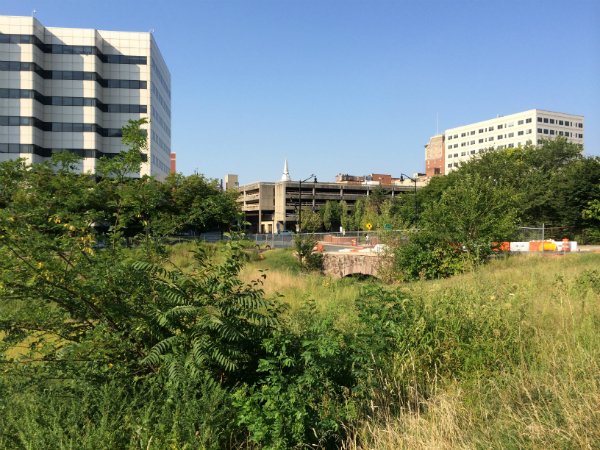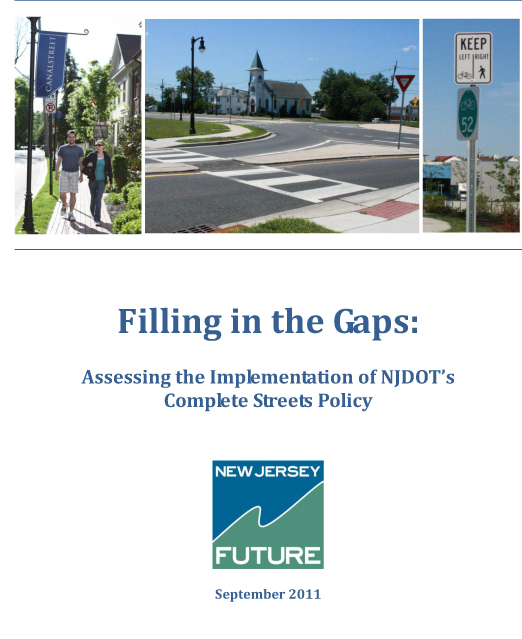New Jersey Future Blog
Permit Extension – A Balancing Act
June 13th, 2008 by Chris Sturm
- A highly debated bill working its way through the Legislature would extend the validity of all approvals of development applications issued by state and local governments. The extensions were originally proposed to run through Dec. 31, 2012 and also apply retroactively to permit approvals that have expired since
Jan. 1, 2006. - Proponents of the bill argue that this permit extension is needed to boost the state’s flagging economy. They say it is unfair to let permits expire on development projects that have met all state and local rules and regulations but are now stalled due to financial difficulties.
- Opponents contend that extending permits, which would exempt current permit-holders from having to comply with any changes in environmental laws, public health standards, building codes or local zoning ordinances adopted during the covered time period, would threaten public health, safety and the environment.
Amendments Could Address Legitimate Concerns
The proposed Permit Extension Act has provoked much discussion. To the business community, including developers and builders, it is a way to keep alive worthy projects that have already received government approvals but might die for lack of financing brought on by a downturn in the economy. To environmental groups, it represents an end run around laws, rules and regulations designed to preserve and protect the environment, and effectively prevents government from applying new protections when reviewing development proposals with expired permits.
New Jersey Future supports permit extension legislation, provided appropriate safeguards are in place. Certain amendments could go a long way toward addressing the legitimate concerns of both sides.
Yesterday, the Assembly Environment and Solid Waste Committee made an important amendment to tighten up the timeframe of the “economic emergency” cited in the bill. The amended bill would extend development approvals that expire between Jan. 1, 2008 (rather than 2006) and Dec. 31, 2010 (rather than 2012). The full Legislature would have the opportunity to extend this period if economic conditions have not improved by then. This would keep open the possibility of helping projects weather the financial storm, without extending to them special treatment they may neither need nor deserve should conditions change.
Other amendments that could still be offered in Senate committee or on the floor of either house would measurably improve the bill. For example, important smart-growth principles could be integrated into the proposed legislation by limiting permit extensions to projects planned in those regions of the state that are designated as priority areas for growth under the State Development and Redevelopment Plan: Planning Areas 1 and 2 and designated centers. Extensions could also be granted to projects planned in approved growth areas in the Meadowlands and Pinelands. This would facilitate development in places where there is broad consensus that growth is both desired and appropriate. At the same time, it would deny special treatment to projects located in rural and/or environmentally sensitive areas away from infrastructure, which warrant adherence to the latest state and local laws, rules, regulations and ordinances.
Another amendment that would safeguard public health and safety would allow regulatory agencies to deny individual permit extensions, based on a demonstrated serious risk to public health and safety. Developers would still have the presumption of validity in these cases, with appeals allowed to the State Planning Commission.
As lawmakers review the proposed legislation, they may find other provisions that could be amended to alleviate—if not altogether relieve—the concerns of all interested parties.
It is in New Jersey’s best interest to encourage economic growth and development while preserving, protecting and enhancing our environment. So long as these two goals are seen as mutually supportive rather than mutually exclusive, it will be possible to craft a law that promotes growth in the right places under the right conditions for the right period of time.
If you have any questions about this issue of Future Facts, please contact Chris Sturm, Senior Director of State Policy.
















